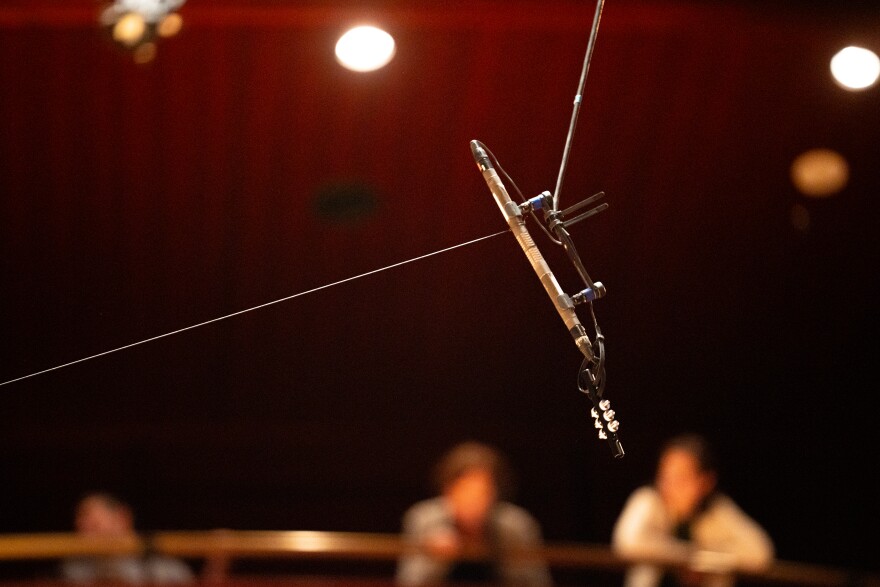Join us on Sunday, Sept. 28 at 1 p.m. on WRTI 90.1 and Monday, Sept. 29 at 7 p.m. on WRTI HD-2 as The Philadelphia Orchestra in Concert brings you a program of Ravel, Holst, and Alfredo Casella from the 2024/2025 season.
The brilliantly scored orchestral suite The Planets, by English composer Gustav Holst, has long been renowned for its vibrant orchestration and astute characterizations of the mythical gods for whom the planets are named. Holst began the work in 1914, just before the outbreak of the First World War. The war delayed its first public performance until 1920, but thereafter it proved so popular that it has largely overshadowed the other works of this inventive and questing composer. The Planets has been especially influential in Hollywood, where composers of film music have long taken inspiration from Holst’s glorious orchestration and gift for vivid characterizations.

The seven movements of The Planets depict Mars, Venus, Mercury, Jupiter, Saturn, Uranus, and Neptune. Pluto was yet to be discovered, some 15 years after Holst began his suite. And the composer left Earth out, perhaps because of its lack of a namesake god from ancient Roman mythology — or perhaps just because of its quotidian familiarity.
Organist Paul Jacobs joins the Orchestra in a monumental concerto written in 1926 by Alfredo Casella. This cosmopolitan Italian composer specifically wanted to establish a national style as identifiable as those of France, Spain, Germany, and England. In pursuit of this aim, he seems consciously to be evoking the muscle of ancient Rome in this exciting work.

Perhaps Casella was inspired also by the sheer size of the very American instrument for which it was commissioned: the organ of the Wanamaker Auditorium in New York City. Although not as famous or as huge as Philadelphia’s Wanamaker Organ, the instrument in the Wanamaker family’s New York store was substantial. Its 200 ranks and 12,000 pipes could deliver waves of impressive sound. Casella took full advantage of the instrument in this virtuosic work. Casella is “inventive, he’s imaginative,” says Paul Jacobs, characterizing this music as “emotion balanced with intellect.”
To open the concert, Daniele Rustioni leads music by Maurice Ravel: Alborada del gracioso, or “Morning Serenade of the Court Jester.” This music draws on the guitar and percussion effects and the dance rhythms of Spain, which attracted so many French composers of the early 20th century. Ravel was especially adept with these effects, having been born only a few miles from the Spanish border to a mother who had grown up in Madrid.

In a technical twist, The Philadelphia Orchestra’s performance of this work marks the 100th anniversary of electrical recording with microphones in 1925 — a development that the Orchestra and its then-music director, Leopold Stokowski, immediately embraced. Andrew Mellor, recording engineer and producer for The Philadelphia Orchestra, recorded the Ravel work on this concert using the first stereo microphone technique, invented just a few years later in 1931. You can learn more about the difference between this early technique and the modern approach in Mellor’s conversation with WRTI senior producer and broadcast engineer Alex Ariff.

PROGRAM:
Ravel: Alborada del gracioso
Casella: Concerto romano for organ and orchestra
Holst: The Planets
The Philadelphia Orchestra
Daniele Rustioni, conductor
Paul Jacobs, organ
Listen to The Philadelphia Orchestra in Concert broadcasts, every Sunday at 1 p.m. on WRTI 90.1, streaming at WRTI.org, on the WRTI mobile app, and on your smart speaker. Listen again on Mondays at 7 p.m. on WRTI HD-2. Listen for up to two weeks after broadcast on WRTI Replay.


